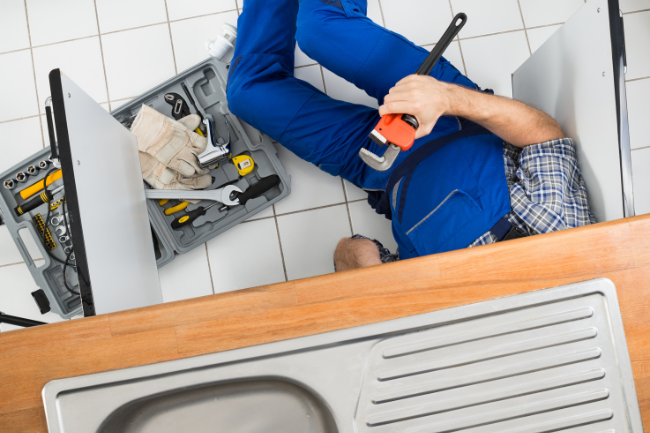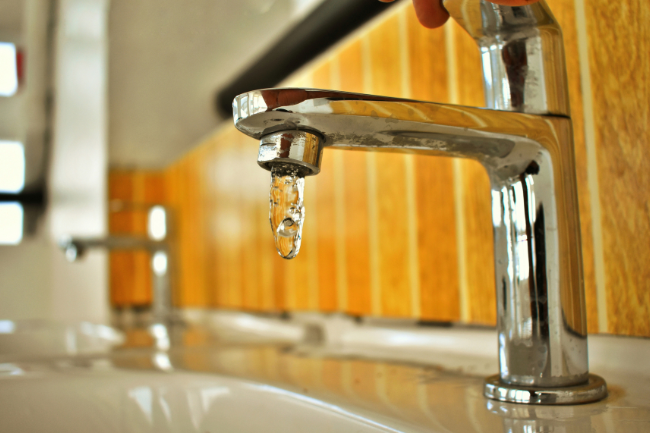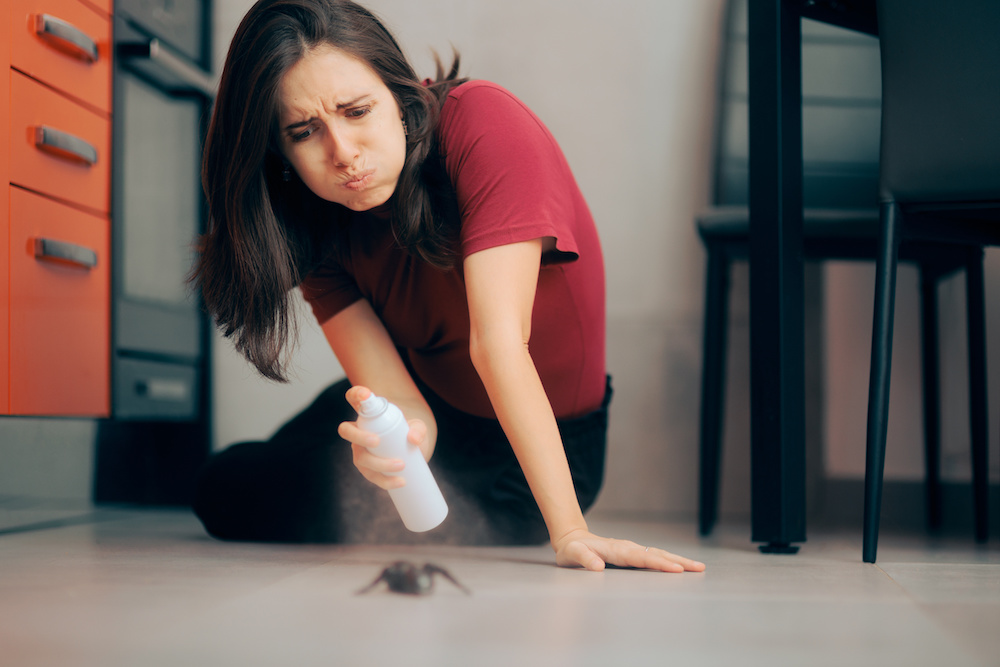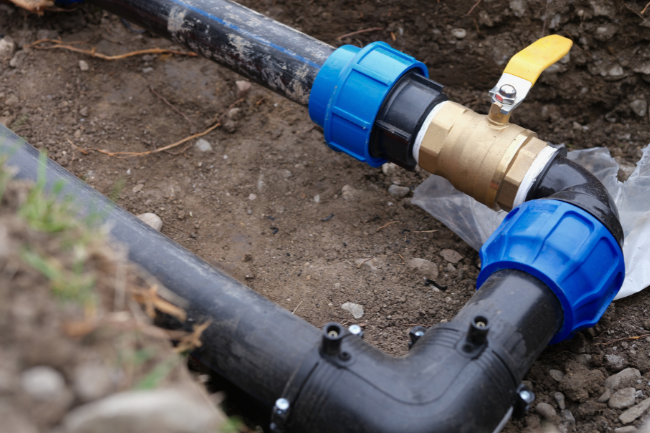What is Limescale & How Does it Effect Your Plumbing
Posted by William Heinselman on

Limescale is a common issue that many homeowners face when it comes to their plumbing. It can cause damage to pipes, and appliances, and even affect the overall performance of your plumbing system. In this blog post, we will dive into what limescale is, how it forms, and most importantly, how it can impact your plumbing.
By gaining a better understanding of this pesky mineral buildup, you'll be able to take the necessary steps to prevent and remove limescale from your plumbing for optimal functionality.
What is Limescale and How Does it Form?
Limescale is a hard, chalky deposit that forms in plumbing systems due to the presence of minerals, primarily calcium and magnesium, in the water supply. It is a common problem in areas with hard water, which contains high levels of these minerals.
When water containing calcium and magnesium flows through pipes and fixtures, these minerals can begin to accumulate over time. As the water evaporates, the minerals are left behind, forming limescale deposits. These deposits can build up and eventually cause problems in the plumbing system.
The formation of limescale is a gradual process that occurs over time. The speed at which it forms depends on the hardness of the water, the temperature of the water, and the surface it comes into contact with.
Understanding how limescale forms is important because it can help homeowners take preventative measures to combat its buildup and minimize its effects on their plumbing system.
Common Signs of Limescale Buildup in Plumbing Systems

There are several common signs that indicate the presence of limescale buildup in plumbing systems:
- Reduced water flow: Limescale deposits can restrict the flow of water through pipes, leading to reduced water pressure in faucets, showers, and other fixtures.
- Clogged showerheads: Limescale can accumulate in showerheads, causing them to become clogged and resulting in reduced water flow and uneven spray patterns.
- Stained fixtures: Limescale deposits can leave behind white or grayish stains on sinks, faucets, and other plumbing fixtures.
- Noisy pipes: Limescale buildup can cause pipes to become noisy, resulting in banging or rattling sounds when water is flowing.
- Increased energy bills: Limescale can also affect the efficiency of water heaters and boilers, leading to increased energy consumption and higher utility bills.
If any of these signs are present, it is likely that limescale buildup is affecting the plumbing system and should be addressed.
Effects of Limescale on Plumbing Fixtures and Appliances
Limescale buildup can have several negative effects on plumbing fixtures and appliances:
- Reduced lifespan: The presence of limescale can shorten the lifespan of plumbing fixtures and appliances. The buildup can cause corrosion, which can lead to leaks and other damage.
- Decreased efficiency: Limescale deposits can reduce the efficiency of fixtures and appliances. For example, a limescale-coated heating element in a water heater will take longer to heat the water, resulting in higher energy consumption.
- Increased maintenance and repair costs: Limescale buildup can lead to frequent maintenance and repair issues. For example, clogged pipes may need to be unclogged or replaced, and appliances may require more frequent repairs or replacements.
- Poor water quality: Limescale can affect the taste and odor of water, making it less appealing to drink or use for cooking.
These effects highlight the importance of addressing limescale buildup in order to maintain the functionality and longevity of plumbing fixtures and appliances.
Preventative Measures to Combat Limescale Buildup
There are several preventative measures homeowners can take to combat limescale buildup in their plumbing systems:
- Water softening: Installing a water softener can help reduce the hardness of the water by removing calcium and magnesium ions. This can significantly decrease the formation of limescale.
- Regular cleaning: Regularly cleaning plumbing fixtures, such as faucets and showerheads, can help prevent limescale buildup. Vinegar or lemon juice can be used as natural cleaners to dissolve limescale deposits.
- Using limescale inhibitors: Adding limescale inhibitors to the water supply can help prevent the formation of limescale. These inhibitors work by coating the surfaces of pipes and fixtures, preventing minerals from sticking and forming deposits.
- Flushing the system: Flushing the plumbing system periodically can help remove any existing limescale deposits and prevent further buildup.
By implementing these preventative measures, homeowners can reduce the risk of limescale buildup and minimize its impact on their plumbing system.
Professional Solutions for Removing Limescale from Plumbing Systems

In some cases, limescale buildup may require professional solutions to remove effectively. Here are a few options to consider:
- Descaling solutions: Professional plumbers can use descaling solutions that are specifically designed to dissolve limescale deposits. These solutions are usually applied directly to the affected areas and left to work for a certain period of time before being flushed away.
- Water softener installation: If the water supply is consistently hard and limescale buildup is a recurring problem, installing a water softener can be a long-term solution. A professional plumber can assess the plumbing system and recommend the most suitable water softener.
- Pipe replacement: In severe cases of limescale buildup, where pipes are heavily affected and damaged, pipe replacement may be necessary. This can be a more extensive and costly solution, but it ensures the removal of all limescale deposits and restores the plumbing system to optimal condition.
It is important to consult with a professional plumber to determine the best course of action for removing limescale from a plumbing system.
Need Pipe Replacement from Limescale Build-Up? Contact Express Sewer
Limescale buildup is a common issue that can have detrimental effects on your plumbing system. Understanding what limescale is, how it forms, and its impact on plumbing fixtures and appliances is crucial for homeowners. By implementing preventative measures such as water softening, regular cleaning, and using limescale inhibitors, you can reduce the risk of limescale buildup and prolong the lifespan of your plumbing system.
In cases where professional solutions are needed, contacting a professional plumber is recommended. If you are experiencing limescale buildup and need assistance, don't hesitate to reach out to Express Sewer for expert help. Remember, taking proactive steps to address limescale buildup will ensure optimal functionality and longevity of your plumbing system.
Topics: Plumbing Tips







